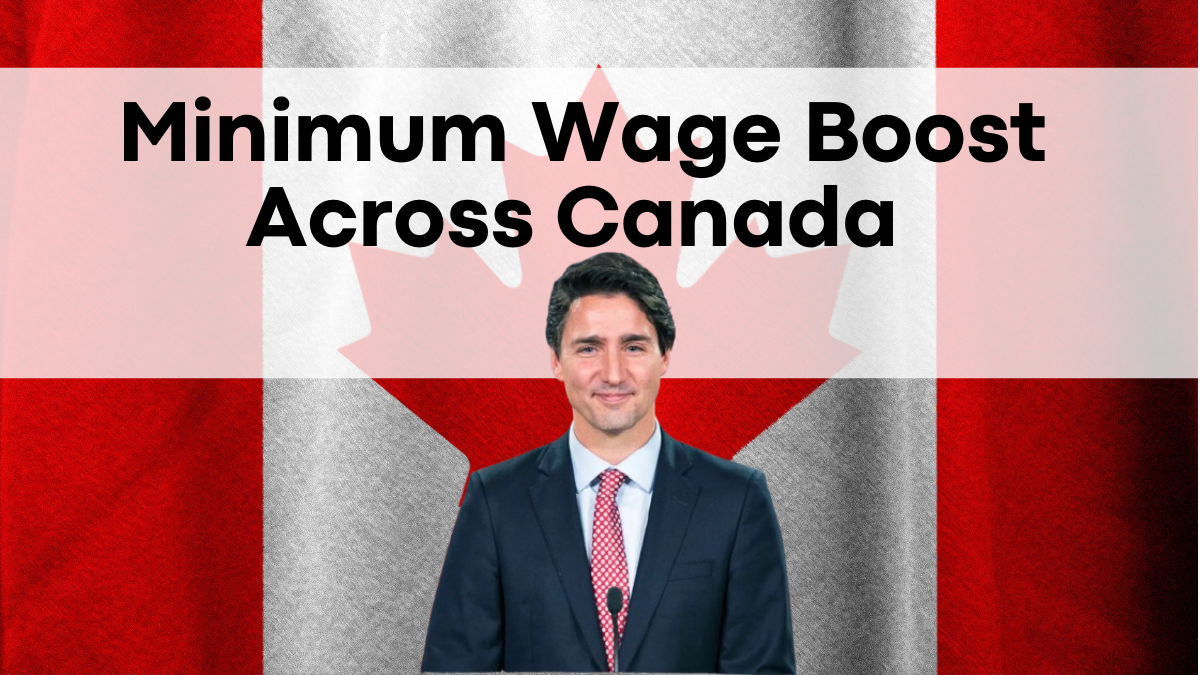To ensure fair pay and help workers cope with rising costs, the Canadian government and provincial authorities have confirmed a wave of minimum wage increases in 2025. These adjustments are designed to reflect inflation and maintain the standard of living for working Canadians.
While Canada has a federal minimum wage that applies to federally regulated workers, most wage rates are set individually by provinces and territories. Each region uses factors like the Consumer Price Index (CPI) and local economic conditions to guide its wage policies.
Here’s a full overview of what changes are coming, when they will be implemented, and what workers in each province should know.

Minimum Wage Boost Across Canada
| Detail | Information |
|---|---|
| Article Title | Canada Minimum Wage Increase |
| Current Average Minimum Wage | $17.30 per hour |
| Effective Date | Begins April 1, 2025 (varies by province) |
| Adjustment Factor | Based on Consumer Price Index (CPI) and inflation |
| Type | Provincially regulated (with a federal rate for certain sectors) |
| Official Source | Canada.ca – Minimum Wage Info |
Understanding Minimum Wage in Canada
The minimum wage is the lowest legal hourly pay rate employers must offer. In Canada, wage regulation is mostly handled by provinces and territories, while the federal rate applies to workers in federally regulated sectors like banking, postal services, and air transportation.
Key Factors That Influence Wage Increases:
-
Consumer Price Index (CPI)
-
Cost of living
-
Regional economic policy
-
Labor market conditions
Each province and territory reviews these indicators annually to determine if wage increases are required.
Provinces Increasing Minimum Wage in 2025
A number of provinces have already confirmed changes effective from April 2025 onwards, while others will follow later in the year. Below is a breakdown by province and date.
From April 1, 2025
New Brunswick
-
Current: $15.30/hour
-
Expected Increase: $15.77/hour (based on CPI trends)
Nova Scotia
-
Current: $15.00/hour
-
New Rate: $15.40/hour
Newfoundland and Labrador
-
Current: $15.60/hour
-
New Rate: $15.91/hour
Yukon
-
Current: $17.59/hour
-
Expected Increase: Over $17.97/hour
From May 1, 2025
Quebec
-
Current: $15.75/hour
-
New rate will be announced closer to the effective date
From June 1, 2025
British Columbia
-
Current: $17.40/hour
-
Increase expected based on inflation; rate to be confirmed
From September 2025
Northwest Territories
-
Current: $16.05/hour
-
Increase under evaluation; announcement due in early 2025
From October 1, 2025
Ontario
-
Current: $17.20/hour
-
Expected Increase: $17.82/hour
-
New rate to be confirmed before April 1, 2025
Federal Minimum Wage: Who It Covers
The federal minimum wage applies only to employees working in federally regulated sectors, including:
-
Federal Crown corporations
-
Banks and financial institutions
-
Postal and courier services
-
Interprovincial transportation
This wage is also reviewed annually based on the national CPI. While most workers fall under provincial wage rules, federally regulated employees should monitor updates from Employment and Social Development Canada (ESDC).
Why the Increases Matter
These wage hikes reflect Canada’s response to:
-
Rising inflation
-
Increasing rent and grocery costs
-
Worker advocacy for fair compensation
The updates aim to prevent working Canadians from falling behind and to ensure wages reflect actual living expenses. They also help reduce poverty, stabilize labor markets, and stimulate local economies.
FAQs
1. Who decides the minimum wage in Canada?
Each province and territory sets its own minimum wage. The federal government sets a separate rate for federally regulated sectors.
2. When do the new minimum wage rates take effect?
Changes begin as early as April 1, 2025, with others taking effect in May, June, September, and October depending on the province.
3. What is the current average minimum wage across Canada?
The average sits around $17.30/hour, though it varies widely by province.
4. How is the new rate calculated?
Most provinces use the Consumer Price Index (CPI) to adjust the rate in line with inflation and cost of living.
5. Is the federal minimum wage increasing too?
Yes, the federal rate is reviewed annually based on CPI and may also rise in 2025.
For More Information Click Here